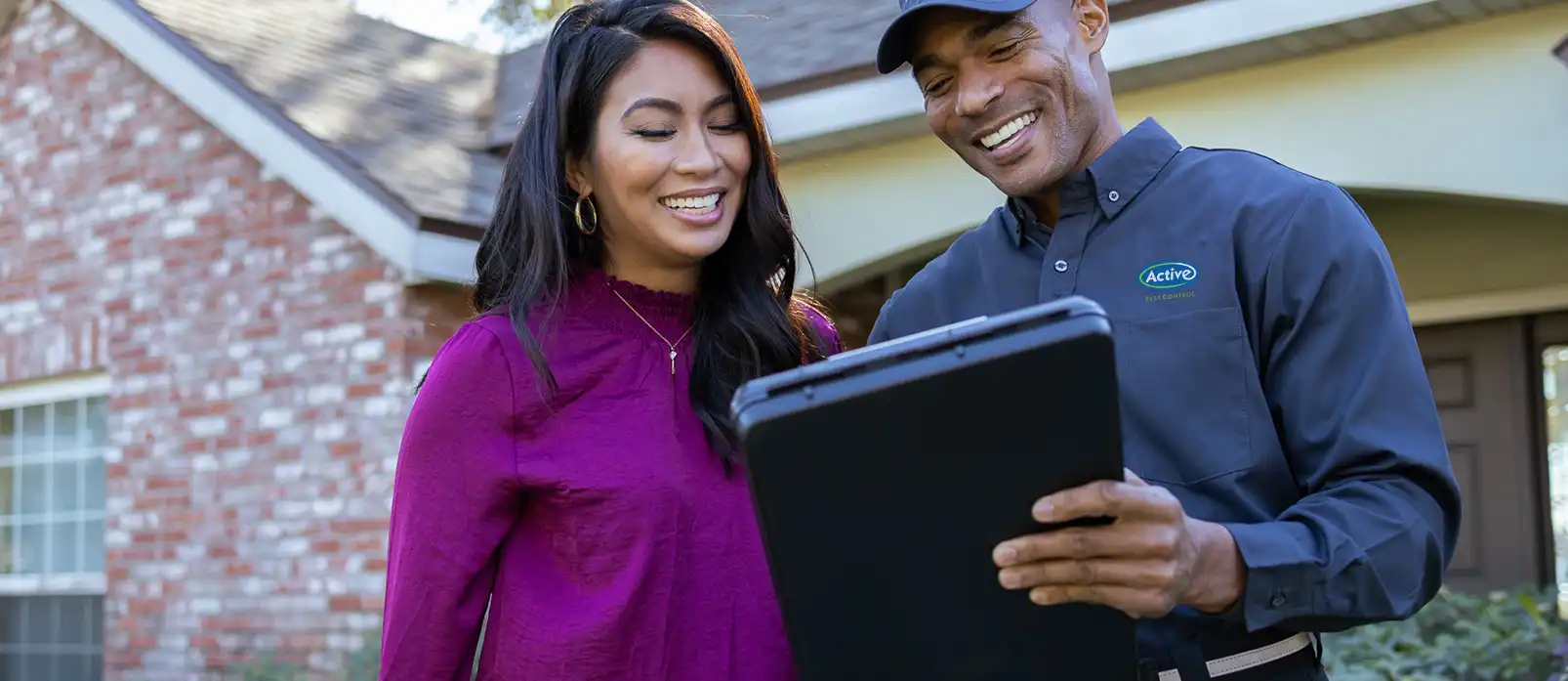A1 Bed Bugs Exterminator Portland - Fast and Professional Service
A1 Bed Bugs Exterminator Portland - Fast and Professional Service
Blog Article
Efficient Pest Control Providers: An Extensive Consider Elimination Techniques and Avoidance Measures
In the world of bug control services, the effective administration of infestations calls for a thorough technique that combines numerous methods and steps for both removal and avoidance. From Integrated Bug Administration (IPM) approaches that focus on sustainable solutions to chemical extermination methods developed for targeted removal, the collection versus insects is large and diverse. Organic control approaches and physical avoidance procedures use alternate paths to successfully combating undesirable trespassers. Nonetheless, the trick to a detailed pest control strategy lies not just in the strategies themselves, but also in the thorough specialist evaluation treatments that precede and inform them. By recognizing the details of each method and how they interplay, one can truly realize the complexity and performance of modern bug control solutions.

Integrated Insect Monitoring (IPM) Strategies
Integrated Bug Monitoring (IPM) Strategies include an extensive strategy to pest control that concentrates on avoidance, tracking, and control approaches to successfully handle insect populaces. By integrating numerous methods, IPM aims to reduce the influence of insects while additionally minimizing the reliance on chemical pesticides. Avoidance exists at the core of IPM, emphasizing techniques like proper cleanliness, maintenance of hygiene, and securing entry factors to deter insects from infesting structures. Surveillance plays an important duty in IPM by routinely identifying and examining bug degrees to identify the proper intervention limits. Control techniques in IPM prioritize the usage of physical, organic, and cultural methods before transforming to chemical treatments as a last option. These methods include introducing all-natural killers, habitat adjustment, and employing trapping tools to keep parasite populaces in check. Generally, IPM promotes a environmentally mindful and lasting technique to pest management, advertising lasting remedies that protect both human health and the environment.
Chemical Extermination Strategies
Chemical extermination strategies are frequently utilized in parasite control services to effectively get rid of bug populaces that present a risk to human wellness and building. These methods involve making use of numerous chemical compounds particularly designed to target and remove bugs such as insects, rats, and other undesirable animals. The application of pesticides, pesticides, rodenticides, and other chemical representatives is thoroughly managed to make certain maximum effectiveness while reducing threats to people, animals, and the environment.
One of the essential advantages of chemical extermination strategies is their capability to offer quick and targeted results, making them particularly useful in instances of severe invasions or immediate bug control demands - a1 portland bed bug exterminator. Nevertheless, it is essential to emphasize the significance of appropriate handling, application, and disposal of these chemical items to avoid unexpected injury
In addition, incorporated parasite management (IPM) methods typically integrate chemical elimination methods with various other techniques such as hygiene, habitat adjustment, and organic controls to create a thorough and sustainable bug control technique. By including chemical elimination techniques sensibly within an IPM framework, insect control solutions can Learn More properly take care of pest populations while lessening possible dangers to human wellness and the setting.
Organic Parasite Control Methods
Utilizing all-natural killers and parasites to manage parasite populations is a lasting method called organic pest control. This technique harnesses the natural systems of the ecological community to regulate parasite populations without relying upon synthetic chemicals. One typical biological control technique includes introducing all-natural adversaries of the target bug varieties, such as ladybugs for aphid control or nematodes for termite invasions. These all-natural killers eat the bugs, assisting to keep their populations in check.
Another efficient organic control technique is making use of microbial insecticides. These are naturally taking place microorganisms, such as fungi, viruses, and microorganisms, that especially target and contaminate particular pest varieties. By utilizing these microbial agents, bug populaces can be effectively decreased without creating or damaging beneficial organisms damage to the setting.
Physical Pest Prevention Actions
Applying physical bug avoidance measures involves using barriers and see post structural adjustments to discourage bugs from infesting a residential property or getting in. Mounting door sweeps, screens on home windows, and securing splits in the structure can assist stop pests like bugs and rodents from obtaining access inside.
One more physical prevention procedure is the use of barriers like fence to maintain larger bugs such as deer or raccoons away from the building. By implementing these physical pest prevention steps, building owners can considerably minimize the risk of parasite invasions and the damages they can trigger.
Professional Bug Evaluation Procedures
Carrying out methodical and thorough bug inspections is a fundamental facet of professional bug management methods. Expert parasite examiners are trained to meticulously check out properties for indicators of infestations, recognizing pest species, entrance factors, and helpful problems.

Final Thought
Finally, efficient parasite control solutions employ a selection of methods, including Integrated Parasite Management methods, chemical extermination approaches, organic controls, and physical prevention procedures. Expert insect assessment treatments play an important office pest control service role in recognizing and dealing with pest concerns in a prompt manner. By implementing a mix of these methods, residential property proprietors can effectively protect against and handle pest problems.
From Integrated Insect Administration (IPM) approaches that focus on lasting services to chemical elimination strategies made for targeted removal, the collection versus insects is huge and diverse.Integrated Pest Administration (IPM) Methods incorporate a comprehensive method to pest control that focuses on prevention, control, and tracking methods to properly handle parasite populations.Chemical extermination methods are generally employed in bug control solutions to properly eradicate bug populaces that present a threat to human health and wellness and building.Employing natural predators and parasites to manage insect populaces is a sustainable technique understood as biological pest control.In conclusion, efficient parasite control solutions use a selection of techniques, consisting of Integrated Bug Management techniques, chemical extermination methods, biological controls, and physical prevention actions.
Report this page